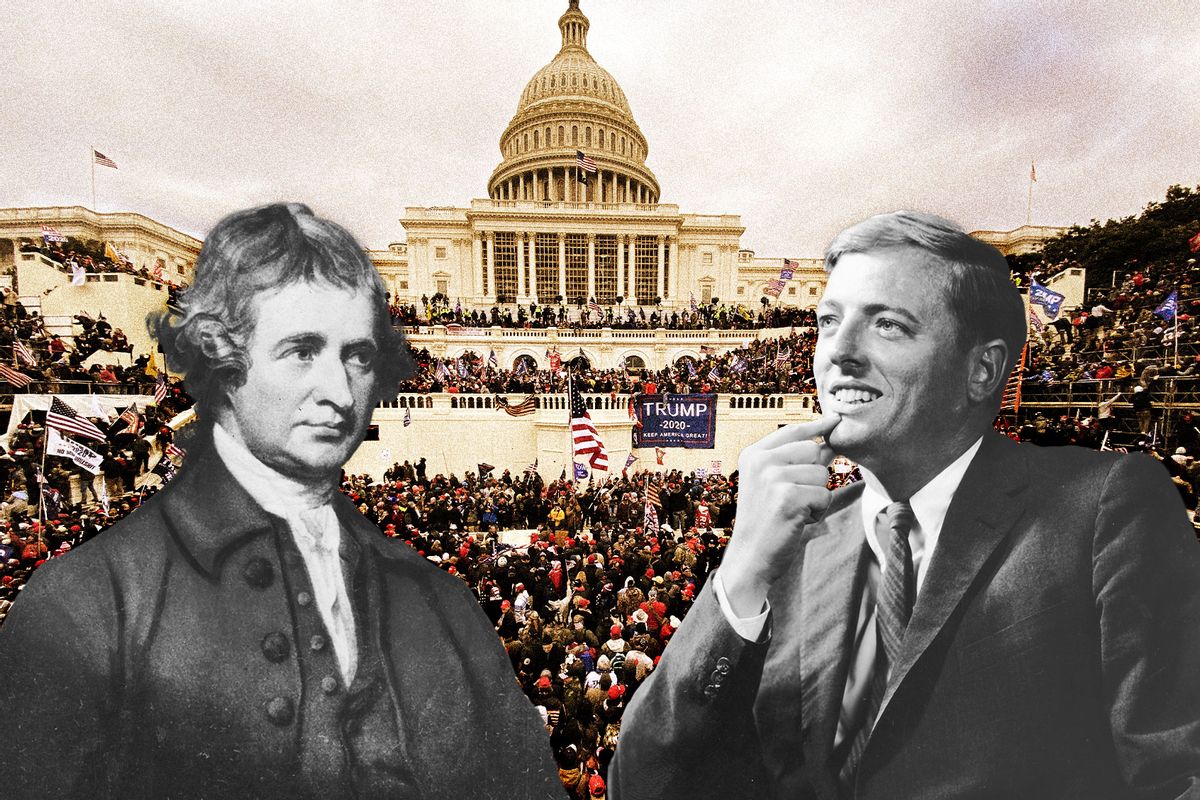Today:
- A long article about “conservative intellectuals”;
- How my attention to politics, especially to conservative antics, is actually all about science fiction, and its aspirations;
- A couple items about the Supreme Court case that did not involve an actual gay person requesting a website.
I’m focusing on this first item today, which makes perfect sense given the understanding of human evolution and the basis of human morality in the ancestral environment, what I’ve been calling Savannah morality. Conservatism is never about basic principles that allow for adapting to changing circumstances, accommodating other people, or thinking things through to reach updated conclusions based on new evidence or changing circumstances; it’s always about basic principles to preserve the status quo, to shore up ancient verities that are never questioned, verities that made sense in the tribal environment, but which they don’t realize have become inoperative, even dangerous, in the modern global world.

Salon, Mike Lofgren, 1 Jul 2023: There’s no such thing as a conservative intellectual — only apologists for right-wing power, subtitled “From Burke to Buckley to Patrick Deneen, we’ve seen a 200-year history of defending the indefensible”
The writer is “is a former congressional staff member and the author of The Party is Over: How Republicans Went Crazy, Democrats Became Useless, and the Middle Class Got Shafted.”
The article is quite long but I’ll quote his opening and then what he sees as the three “simple points” of conservatism. (His trigger seems to be reviews in recent weeks of that book called “Regime Change” by Patrick J. Deneen, who proposes, without examination, his idea of a “common good” based on Christian principles (of course). I discussed it here.)
Lofgren begins by quoting Lionel Trilling from 1950:
In the United States at this time liberalism is not only the dominant but even the sole intellectual tradition. For it is the plain fact that nowadays there are no conservative or reactionary ideas in general circulation. This does not mean, of course, that there is no impulse to conservatism or to reaction. Such impulses are certainly very strong, perhaps even stronger than most of us know. But the conservative impulse and the reactionary impulse do not, with some isolated and some ecclesiastical exceptions, express themselves in ideas but only in action or in irritable mental gestures which seek to resemble ideas.
Lofgren then comments,
Three-quarters of a century later, Trilling’s statement remains broadly true, as a glance at conservative books will attest. The hundreds of conservative book titles that have geysered out of Regnery, Broadside and other right-wing imprints in recent years are almost invariably distinguished by their numbing sameness: a shrill cry of victimhood, a hunt for scapegoats, a tone that alternates between hysteria and heavy sarcasm, and a recipe for salvation cribbed from Republican National Committee talking points and Heritage Foundation issue briefs. The fact that they sometimes hit the bestseller list is principally due to the well-funded conservative media-entertainment complex’s bulk-purchase scam.
(I mentioned the bulk-purchase scam, as he calls it, in this post, with the item from Alternet.)
Before he addresses that book, he summarizes the history of the conservative intellectual (if that is not an oxymoron) tradition. French Revolution; Edmund Burke; Buckley and Kirk and Will. And so on. Then:
However much modern theorists have elaborated upon the ideas inherent in conservatism during the two centuries since Maistre, they all seem to me to boil down to three simple points:
- A desire for hierarchy and human inequality. This belief derives from the medieval religious notion of the Great Chain of Being, whereby there is a place for everybody and everybody must know his place. It justifies economic exploitation and denial of political rights. Conservative writers propagandize on its behalf with a straw-man argument: Any gain in equality costs society an equal or greater loss in freedom; egalitarianism is the mere soulless equality of the gulag, where we cannot own property and must share toothbrushes. This sentiment pops up consistently in the works of American conservative theorists, from Buckley’s “Unless you have freedom to be unequal, there is no such thing as freedom,” to David Brooks’ hankering for rule by a wise elite. American-style laissez-faire economics and libertarianism are largely based on this idea.
- The only acceptable society is based on Christianity. Never mind the establishment clause of the First Amendment; conservatives will forever try to smuggle in more and more official endorsement of religion until the United States is effectively a theocracy. The rationale is that some sort of divine or transcendental dispensation is the sole basis for a just temporal order. Translated into the bumper-sticker mentality of American Christian fundamentalism, that means that if people don’t believe in God, there’s nothing to stop them from running amok and killing people. This thesis would have been news to medieval crusaders, the Holy Inquisition, Francisco Franco’s Falangists or the Russian Archbishop Kyrill, who has blessed Putin’s invasion of Ukraine and the resulting carnage.
- We must obey tradition. For some unexplained reason, our ancestors were infinitely wiser than us, and apparently they get a vote on present affairs. To paraphrase Edmund Burke, if we’re going to have democracy, let’s extend it to the dead. Scratch someone who fancies himself an educated conservative and you will often find a person who reveres the past; unfortunately they leave out details like slavery, witch burning and childbed fever. Many psychologists consider this mentality to be a cognitive bias in brain function, but whatever its source, the political utility of the attitude is obvious: Utopia only exists in an ever-receding past, progress is impossible, and future generations shall profess bygone superstitions. And tradition, in this case, means the folkways of a specific, favored culture, thus denying the universality of the human spirit. The idea is well expressed by Buckley’s statement that conservatives must “stand athwart history yelling ‘stop.'”
One can grasp that the three precepts dovetail together in that they all rely on dogmatic assertion, denial of a scientific or empirical basis of reality and reactionary nostalgia. They are also pretty thin gruel for founding an intellectual tradition: there are simply too many departments of knowledge, for instance, much of science, that must be declared off limits to prevent them from tainting the party line. This is why conservatives habitually retreat into mysticism, gut feelings and the wisdom of our fathers when the facts are against them. It is more accurate to say that conservatism is a counter-intellectual activity that sometimes employs the trappings of intellectual discourse.
I could parse these points at length, show how they derive from Savannah morality. The article goes on, and perhaps I’ll revisit it in another post.
For now I will make the point again that while I regularly decry political issues concerning Republicans, I’m not being a partisan political observer, exactly. This is all about science fiction. It’s about understanding reality, and whether humanity can grow and overcome its base instincts. The Republicans are, in America, the exemplar of enacting these base instincts, via what I’m calling their “Savannah morality.” The essay I’m finishing for Gary Westfahl, and my eventual book if I ever finish it, is about this core theme of humanity’s potential growth, of which current political matters are just one layer of evidence.
\\\
For today, a couple more items about the Supreme Court case about the Christian who got excused from designing a website for a gay couple.

CNN, 30 Jun 2023: Colorado web designer told Supreme Court a man sought her services for his same-sex wedding. He says he didn’t – and he’s straight
She was only *afraid* that a gay customer might ask for here services to personally design a website.
The man was identified as “Stewart” in court filings and as someone who requested graphic designs for invitations and other materials for a same-sex wedding with his fiancé, Mike. CNN contacted Stewart through information in court filings. He asked for his last name, which is not in the filing, not to be used.
In an interview with CNN Friday, Stewart said that he “did not submit a request” to the company, 303 Creative, and is a “happily married man to a woman of 15 years.”
“I don’t know Mike,” Stewart said. “I’ve never asked anybody to design a website for me, so it’s all very strange. I certainly didn’t contact her, and whatever the information in that request is, is fake.”
Stewart, who previously worked for CNN, said that he is a web designer himself, and that “it would make zero sense to hire a web designer when I can do that for myself.”
\
Heather also mentions this.
Letters from an American, Heather Cox Richardson: June 30, 2023.
This whole scenario of being is prospective, by the way: her online business did not exist and no one had complained about it. Smith claims she wants to start the business because “God is calling her ‘to explain His true story about marriage.’” She alleges that in 2016, a gay man approached her to make a website for his upcoming wedding, but yesterday, Melissa Gira Grant of The New Republic reported that, while the man allegedly behind the email does exist, he is an established designer himself (so why would he hire someone who was not?), is not gay, and married his wife 15 years ago. He says he never wrote to Smith, and the stamp on court filings shows she received it the day after she filed the suit.
Despite this history, by a 6–3 vote, the court said that Smith was being hurt by the state law and thus had standing to sue. It decided that requiring the designer to use her own words to support gay marriage violated the First Amendment’s guarantee of free speech.
Why am I not surprise to see that “God is calling her”?
Have I mentioned my provisional definition of Christians like her as people who are aggressively unwilling to get along with people unlike themselves? Apparently unable to live in a civil, secular society?
And why again, if this ruling stands, does this not allow bigots to refuse service to blacks, or Jews, or Catholics? That last would have been an interesting question to pose to the Supreme Court, several of whose justices are Catholics.






